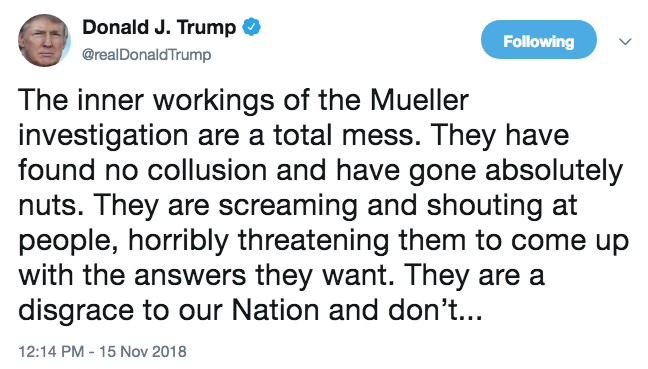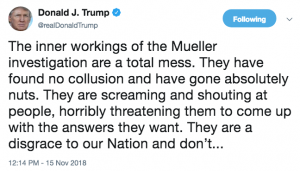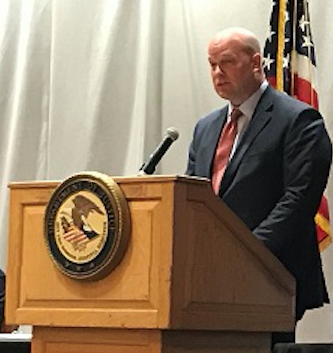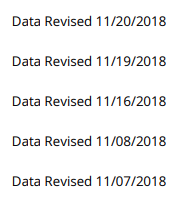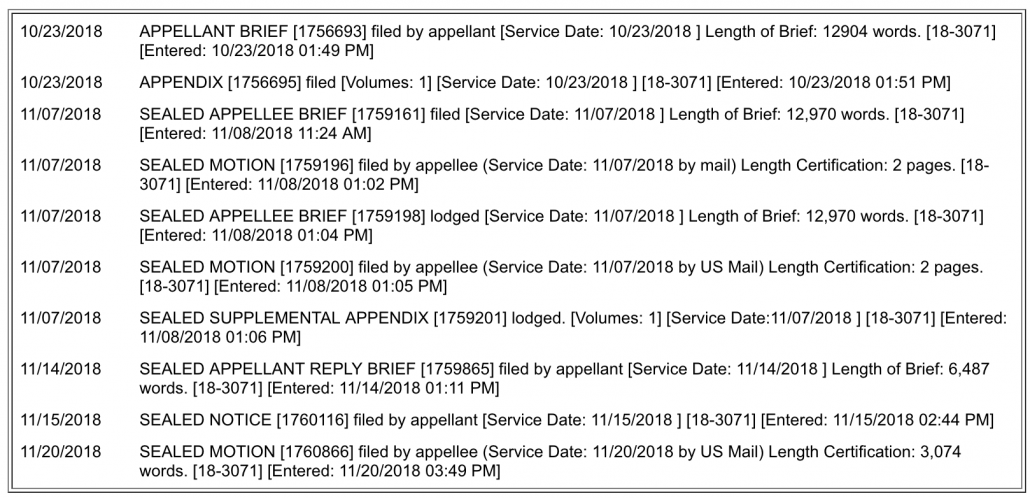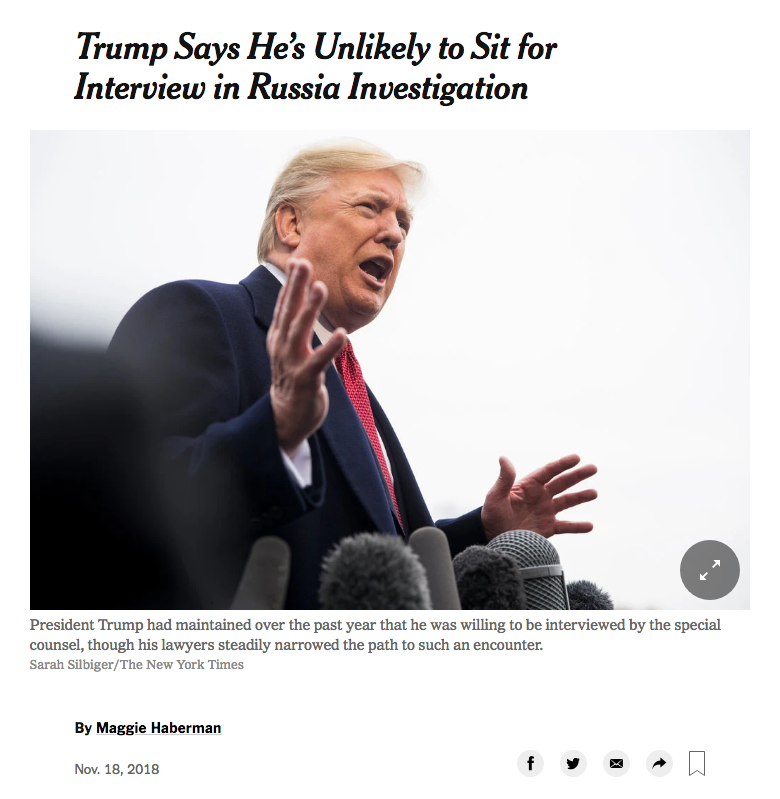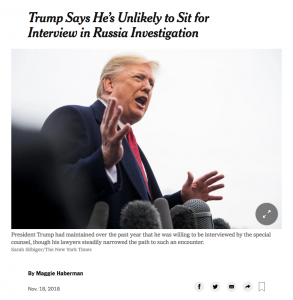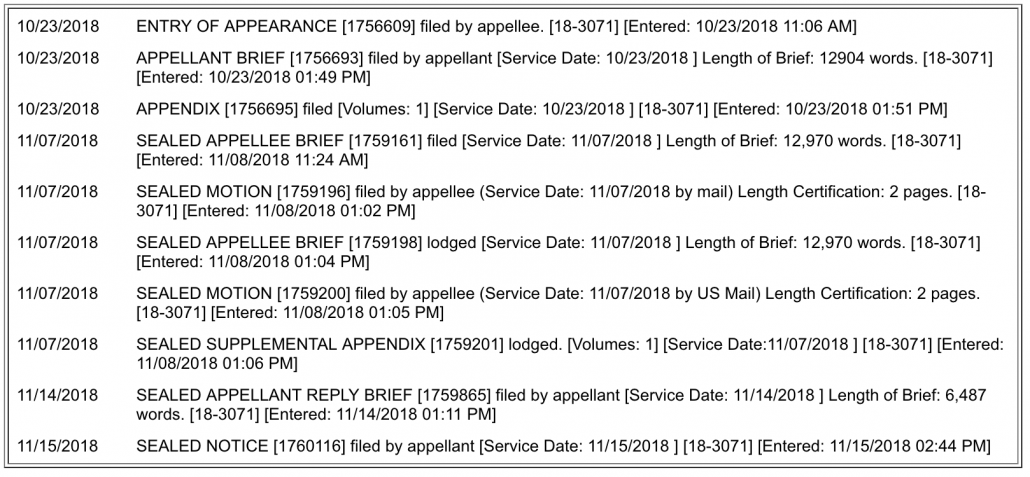The Manafort Election Season Lying Bonanza Stall
I’d like to look at the timing laid out in Mueller’s filing arguing that Paul Manafort breached his plea agreement.
Manafort lied about his handler and his bankers
As the government lays out, Manafort lied about several things.
- His communications with Konstantin Kilimnik: He appears to have denied his ongoing reporting to Kilimnik during the campaign, and (as WSJ reported), he appears to have hidden details about a boat trip he made with Tom Barrack after being fired from the campaign. There’s one more instance of a Kilimnik contact he’s lying about.
- Kilimnik’s role in witness tampering: This one is frankly remarkable. As part of Manafort’s plea, he agreed that Kilimnik helped him attempt to witness tamper. Then, after that plea, he denied that very thing. Then, “when asked whether his prior plea and sworn admissions were truthful, Manafort conceded that Kilimnik had conspired with him.”
- Payment to a firm working for him: Manafort lied about someone — it doesn’t say whom — paying off a $125,000 debt for him. Maybe this explains who is paying his spox, or maybe it even pertains to legal fees (though the amounts don’t come close to the fees covering the latter he must have incurred).
- Another DOJ investigation: After proffering information that would help another investigation before his plea, Manafort told an exculpatory story after he signed his plea agreement. I suspect @liberty_42 is correct that this investigation pertains to the mortgage Manafort got from Steve Calk, especially given that his bank is (remarkably) contesting the forfeiture and the charges pertaining to him are among those Mueller seems to be considering retrying.
- Contact with the Administration: I said in this post that if Mueller has evidence that Manafort discussed pardons with the Administration, now would be a good time to show it. In the passage describing Manafort’s lies about contacts with the Administration, it records him making a blanket denial; he had “no direct or indirect communications with anyone in the Administration while they were in the Administration” [my emphasis], but then goes on to suggest that Mueller had interest in “certain individuals.” Manafort claimed he had only spoken with those “certain individuals” before or after they worked for the Administration. This is kind of a dumb lie by Manafort to begin with, as there’s reporting of him talking to people like Reince Priebus. But Mueller’s invocation of a text from a specific date — May 26, 2018 — as well as what appears to be Rick Gates’ testimony that Manafort remained in communication with a senior Administration official up until February 2018 (when Gates flipped), suggests Mueller not only knows that Manafort had these discussions, but knows what was discussed. And I’m betting that involves pardons. If I’m right, then it would mean that Amy Berman Jackson will soon review whether Manafort lied about asking for a pardon.
June 9 lies are not alleged
There are a few things to conclude about the substance of Manafort’s claimed lies — aside from the fact that he really doesn’t want to tell the truth about Konstantin Kilimnik, whom the government alleges has ties to GRU.
First, the government notes that “at four of the post-plea meetings, prosecutors from other Department of Justice components attended.” If Manafort lied about Calk, that makes sense, because Calk would be prosecuted in NDIL or SDNY (where Mueller referred everything else). Konstantin Kilmnik’s other business partner, Sam Patten, is being managed out of DC, so prosecutors from there may have sat in. It may just be that National Security Division lawyers attended because all this involves counterintelligence. But the presence of outsiders at almost half of the post-plea meetings suggests that the Mueller investigation was not the prime focus.
And in spite of CNN’s scoop today that the June 9, 2016 meeting did come up with Manafort, it’s not mentioned here. That seems to suggest that while Mueller did get Manafort on the record on certain subjects relating to the election, aside from lies about his handler Kilimnik, Mueller is not including those lies here.
But Mueller did put Manafort before a grand jury on two occasions, after what must be weeks of lying, but right before the election, on October 26 and November. Significantly, that was a key time for Mueller’s Roger Stone investigation, especially November 2, when other Stone witnesses testified. We know that Mueller did ask Manafort for information about his lifelong buddy Roger Stone even in the time period leading up to Manafort’s grand jury testimony.
Still, aside from lying about his handler, Mueller doesn’t lay out any of Manafort’s lies on these subjects, if he did tell lies.
Immediately after the election Mueller started to deal with their liar
Here’s the timeline of what all this lays out.
Prior to September 14: Three proffers that presumably matched what prosecutors knew
September 14: Manafort pleads guilty
October 14: Based on CNN’s accurate count, end date for regular meetings between Manafort and Mueller
October 22: Rudy mouths off about continuing to get reports from Manafort
October 26: Manafort testifies to the grand jury
November 2: Manafort testifies to the grand jury
November 8: The government informs Manafort he has breached his plea agreement; Trump’s people work the press suggesting he may not respond to Mueller’s questions
November 13 [one day after return from France]: Trump initially promised to turn in open book test
November 15: Blaming leaked Corsi plea, Trump balks on submitting his open book test
November 13-16: Manafort’s lawyers argue he didn’t lie
November 20: Trump turns in his open book test, having refused to answer questions on the transition
November 26: Manafort’s lawyers argue he didn’t lie; Mueller refuses another extension to continue that effort
Thanks to CNN’s stakeout journalism, which accurately reported 9 meetings in the post-plea four weeks, we know that it’s not like Mueller suddenly realized at the end of all this that Manafort was lying. Because all the meetings they counted predated Manafort’s two grand jury appearances, we can be virtually certain that Mueller knew by that point Manafort was lying, and lying about silly stuff to which he had just pled guilty. Mueller gave Manafort nine post-plea changes to tell the truth, put him before the grand jury twice after that, and then less than a week later (the day after Sessions got fired and the first day that Matt Whitaker would have been Acting Attorney General, and on the very day Trump publicly balked on whether he was really going to turn in his open book test), Mueller for the first time told Manafort he had failed to meet the terms of the plea agreement.
Then starting again on the day when Trump said he maybe kind of would turn in his answers after taking a day to recover after his Paris trip, Manafort’s lawyers started to argue that their client hadn’t lied. That argument continued until the day after Trump balked again and the government got a 10-day extension on the status report on Manafort. Finally, after using that 10 day extension to … apparently do nothing, Manafort’s lawyers made one more try to argue their client didn’t lie.
In the interim period, Trump turned in his open book test.
Throughout this period, at least according to the government, Manafort’s lawyers didn’t advance any argument to refute the government claim their client lied. “In none of the communications with Manafort’s counsel was any factual or legal argument made as to why the government’s assessment was erroneous or made without good faith.”
Who was stalling whom?
I have argued that by entering a pardon-proof plea deal with a known liar while Trump pondered how to answer Mueller’s open book test, Mueller may have lulled Trump into answering those questions. The record doesn’t entirely support that case (though it is not incompatible with it), as Trump knew before he handed in his open book test that Mueller had branded Manafort a liar. Plus, because Mueller doesn’t allege that Manafort lied about some of the big questions — and because Mueller seems to have been tending other investigative priorities, like Steve Calk — we can’t tell (aside from the public report that Manafort got asked about his buddy Roger and Rudy’s claim Mueller’s prosecutors told Manafort Trump was lying about June 9) whether Mueller asked questions about key events like the June 9 meeting and Manafort lied, whether he just didn’t pose them, or whether he doesn’t have the other credible sources to present to Amy Berman Jackson.
So it’s unclear how Mueller approached the aborted election season plea deal.
But if Mueller’s claims that Manafort lied hold up — and his lies look really contemptuous — then it appears clear that Manafort is either hopelessly pathological and/or he used the plea deal just to buy time, presumably for Trump.
As I disclosed in July, I provided information to the FBI on issues related to the Mueller investigation, so I’m going to include disclosure statements on Mueller investigation posts from here on out. I will include the disclosure whether or not the stuff I shared with the FBI pertains to the subject of the post.



